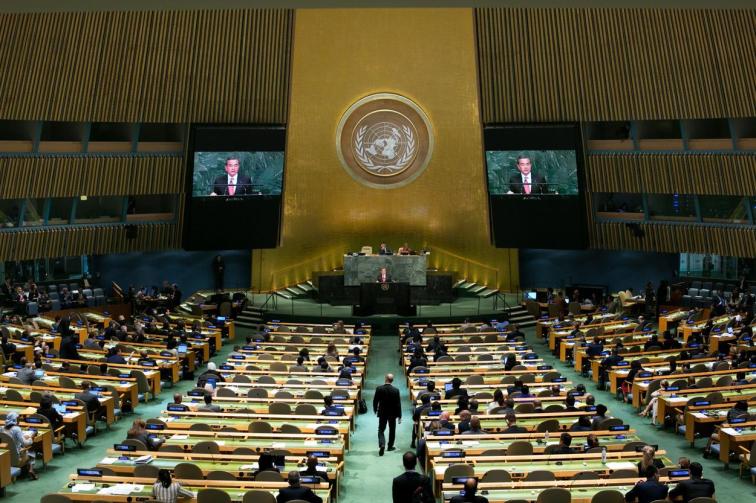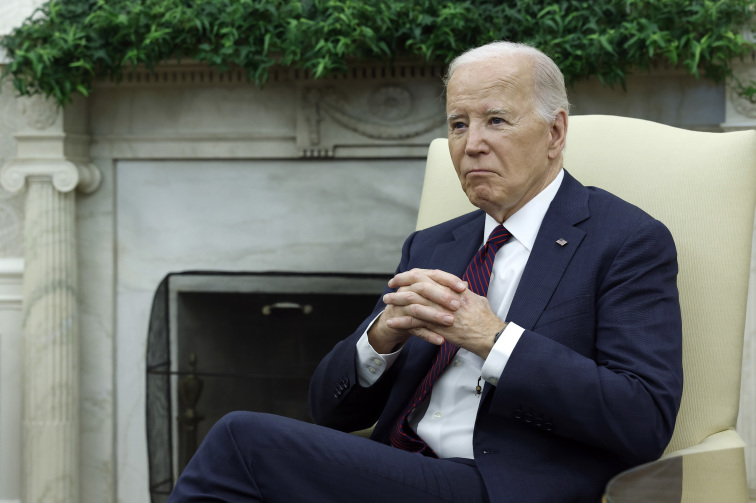The CCP military is riddled with corruption. (Graphic by People News)
[People News] The CCP has issued new regulations on military land, with a focus on standardising the handling of military land-use rights. Military housing has long been a hotbed of corruption within the PLA. In recent years, with portions of military land entering the market, collusion between the military and local governments has sparked public concern. Some scholars point out that the new rules emphasise cooperation between the military and local governments, which instead increases opportunities for the military to seek rent through such collusion. The authoritarian system of the CCP is the root cause of corruption; no matter how many laws are issued, they cannot eradicate military corruption. The PLA is already terminally ill with corruption.
According to the CCP state media on the 23rd, the Central Military Commission (CMC) recently published the Regulations on the Administration of Military Land, which will take effect on November 1, 2025. The new regulations stipulate that the right to use military land belongs to the CMC, represented by the CMC’s Logistics Support Department. Logistics departments at the regimental level and above are responsible for the specific management of their own unit’s land. At the same time, local natural resources departments at the county level and above are responsible for land management. The regulations stress coordination between the military and local governments, including provisions that military land must undergo property registration, that county-level and above governments can borrow military land, and that military land-use rights can be transferred to local governments under certain rules.
Public records show that after the CCP took power, military land was initially allocated administratively under the planned economy. After the so-called reform and opening up, the military entered real estate development, and parts of military land entered the market. The use rights to military land have always belonged to the CMC, executed by the General Logistics Department (now the Joint Logistics Support Force).
In the past, many rules were issued regarding military land and housing, such as the 1988 Land Administration Law, the 1992 Interim Provisions on Military Real Estate Development, the 1995 Interim Provisions on the Transfer of Military Land Use Rights, the 1996 Law on the Protection of Military Facilities, and the 2000 Military Real Estate Administration Regulations.
The total area of PLA real estate has never been made public. In the past, any change in ownership of military property required approval from the General Logistics Department; ordinary military housing could not be traded on the open market, and local courts would not accept related property disputes. By 2023, the newly created China Rongtong Corporation launched a nationwide registration and exchange program for military housing.
Under the 2000 Military Real Estate Regulations, the General Logistics Department was responsible for allocation, disposal, use, and management of military real estate; reviewing land-use plans for military construction projects with relevant state agencies; and approving garrison plans for corps-level units and above. The new rules now emphasise that disposal of military land-use rights must be approved according to CMC regulations; otherwise, the action is invalid.
Shen Mingshi, a researcher at Taiwan’s Institute for National Defence and Security Research, stated that the new rules aim to clarify ownership and management rights of military land, especially coordination with local governments. In the past, whether it was building housing or developing parks, military departments always dipped their hands into economic development. Now, with many matters requiring CMC approval, this means authority rises from the Logistics Support Department to the CMC itself, possibly even to specific CMC vice-chairmen. But the emphasis on cooperation with local governments will only create more opportunities for collusion and rent-seeking. He noted that corruption in the PLA has never been due simply to the absence of laws, but because even when laws existed, officials ignored them. Adding another layer of oversight will still be difficult to enforce.
The old General Logistics Department was a notorious corruption hub. Disgraced generals Gu Junshan and Wang Shouye both served as heads of its Infrastructure and Barracks Department. Gu even served as director of the PLA Housing Reform Office and deputy head of the General Logistics Department. Former General Logistics Department Minister Zhao Keshi is also among the recently rumoured retired generals under investigation.
Other senior generals also profited from military land. After former CMC member Fang Fenghui fell in 2017, reports revealed that during his tenure as Beijing Military Region commander (2007–2009), he sold off military land to amass a fortune. For instance, the land of the PLA’s 292nd Hospital was sold for 4.7 billion yuan.
After Xi Jinping’s sweeping military reforms, the most recent head of the CMC Logistics Support Department, Zhang Lin, was stripped of his status as a National People’s Congress deputy on September 12, confirming rumours of his downfall.
Current affairs commentator Li Linyi told Dajiyuan that the CCP has issued countless regulations before, but Xi Jinping’s own trusted aide, Miao Hua, is a major corrupt figure himself. Under the CCP’s authoritarian system, the problem is not how many rules exist; corruption cannot be prevented this way.
Wang Guochen, an assistant researcher at the Taiwan Institute of Economic Research’s Mainland China division, told Dajiyuan that the more the PLA involves itself in the economy, the worse the corruption becomes. But with the economy struggling and U.S.-China relations tense, Xi Jinping can only rely on the military. Allowing the military to further participate in land transactions can be seen as a form of compromise with the PLA.
On the issue of CCP corruption, outside observers have often noted that the root cause lies in the CCP’s authoritarian system. No number of regulations can eradicate corruption in the military. CCP anti-corruption campaigns have never relied on the rule of law; they are political weapons for factional purges. Under the banner of “fighting corruption,” Xi Jinping has repeatedly purged the PLA in order to identify potential “Prigozhins,” prevent mutiny, and consolidate his command over the military. For the PLA does not serve the nation—it is the tool by which the CCP maintains its rule.
One former deputy secretary of the Central Commission for Discipline Inspection, who announced his resignation from the Party in Dajiyuan, said: “We in this position know very well: all of the country’s major problems and contradictions, the root of why they cannot be solved, lies in the political system itself. Take anti-corruption: it looks like a grand campaign, but is it effective? The more they fight it, the more corruption there is. How many high officials in the same post fall one after another? One person, then another, then another. From this pattern, you can see the root cause—it’s the system. Who supervises? Who dares to supervise? As long as the system does not change, corruption can never be solved.” △









News magazine bootstrap themes!
I like this themes, fast loading and look profesional
Thank you Carlos!
You're welcome!
Please support me with give positive rating!
Yes Sure!